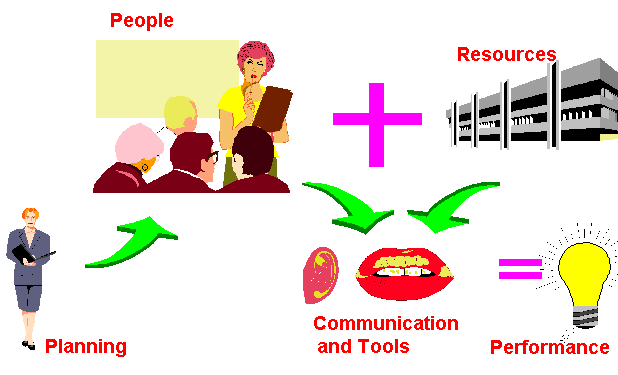Good Day Y'all,
Here are the three writing assignments we must learn and engage in before the end of the year. We have 3 months; March, April, and May, to learn persuasive writing, a literary analysis, and expository writing; along with the constitution, Westward Expansion, and the Civil War.
How do these become projects I facilitate?
What module topics must we include to support this?
How do we make it LESS MINE & MORE OURS?
Please familiarize yourselves with them and bring ideas to circle for discussion...
Persuasive writing, could be referred to as a creative writing or an argument, in which the speaker uses words to convince the reader of a writer’s view(s) regarding an issue. Persuasive writing involves convincing the reader to perform an action, or it may simply consist of an argument(s) convincing the reader of the writer’s point of view. Persuasive writing is one of the most used writing types in the world. Persuasive writers employ many techniques to improve their argument and show support for their claim. Another definition is "an essay that offers and supports an opinion".
By appealing to credibility, writers can make their claims more believable. This is called an appeal to ethos, as defined by Aristotle. The writer builds on his or her ethos by writing with clarity (an important element of style) and eliminating contradictions within the text itself. The writer will be more credible to the target audience if there are no internal errors in syntax and mechanics as well as no factual errors in the subject matter.
Writers can appeal to logic when writing to persuade using the appeal known as logos. This appeal is manifested in the supporting statements for the writer’s claim. In most cases, a successful appeal to logos requires tangible evidence, e.g., a quote from acknowledged written material. The writer will appeal to the rationality of the audience.
Possibly the most important appeal for persuasive writers is the appeal to emotions or pathos. “A successful pathetic appeal will put the audience in a suitable mood by addressing their knowledge of or feelings about the subject” (Mendelson). This can be a very effective way to win over an audience!
Most persuasive writing techniques use an effective combination of all three appeals. It is the best way to convince people.
Expository writing is a type of writing where the purpose is to inform, describe, explain, or define the author's subject to the reader. Expository text is meant to deposit information and is the most frequently used type of writing by students in colleges, high schools, middle schools, elementary schools and universities. A well-written exposition remains focused on its topic and lists events in chronological order. Examples of expository writing include driving directions and instructions on performing a task. Key words such as first, after, next, then, last, before that, and usually signal sequential writing. Second-person instructions with "you" are acceptable.[clarification needed] However, the use of first-person pronouns should be avoided. Expository essays should not reveal the opinion of the writer.
Exposition is a type of oral or written discourse that is used to explain, describe, give information or inform on what is being discussed. One important point to keep in mind for the author is to try to use words that clearly show what they are talking about rather than blatantly telling the reader what is being discussed. Since clarity requires strong organization, one of the most important mechanisms that can be used to improve the writer's skills in exposition is to provide directions to improve the organization of the text.It tells readers about the information in the selection.
Let's think about the type of writing that most of us encounter in our daily lives. When you pick up and read a non-fiction book, magazines, or newspaper article the author uses expository writing to inform you, the reader, about the topic. At school, students are required to submit school exams and research papers as a means for their teachers to grade their progress. Finally, at work, people are required to produce business reports and memorandums to inform their superiors and co-workers about the occurrences that take place at other levels of the company. In addition, oral exposition is primarily observed in oral academic presentations, business talks, and speeches that are delivered to a group of people. As each of these different cases illustrate, expository writing and speech surround us in our everyday lives. The primary intent of the Expository Writing Program contained at this web site will be to help move students closer to mastering the hows, whens, and wheres to select different oral and written expository styles for a variety of real world contexts.
Literary theory in a strict sense is the systematic study of the nature of literature and of the methods for analyzing literature.[1] However, literary scholarship since the 19th century often includes—in addition to, or even instead of literary theory in the strict sense—considerations of intellectual history, moral philosophy, social prophecy, and other interdisciplinary themes which are of relevance to the way humans interpret meaning
Comparative Analysis
Sincerely,
C




 2. We have a One-Page-Wonder to read quickly and an activity called "WRITTEN DISCUSSION". This activity will prepare us for QUALITY CIRCLES. Quality Circles are like study groups that can serve many purposes, overcome challenges, and resolve issues.
2. We have a One-Page-Wonder to read quickly and an activity called "WRITTEN DISCUSSION". This activity will prepare us for QUALITY CIRCLES. Quality Circles are like study groups that can serve many purposes, overcome challenges, and resolve issues. 



